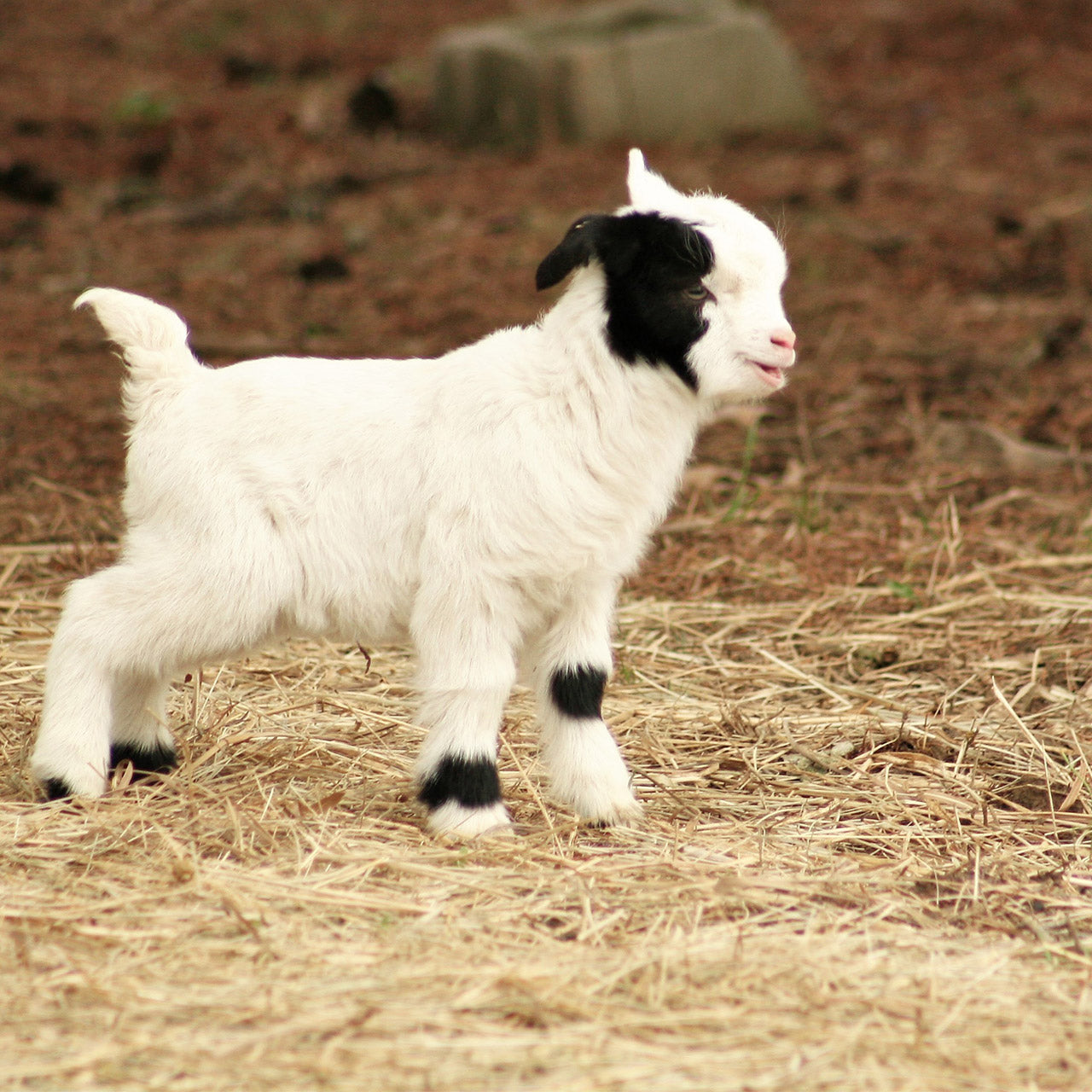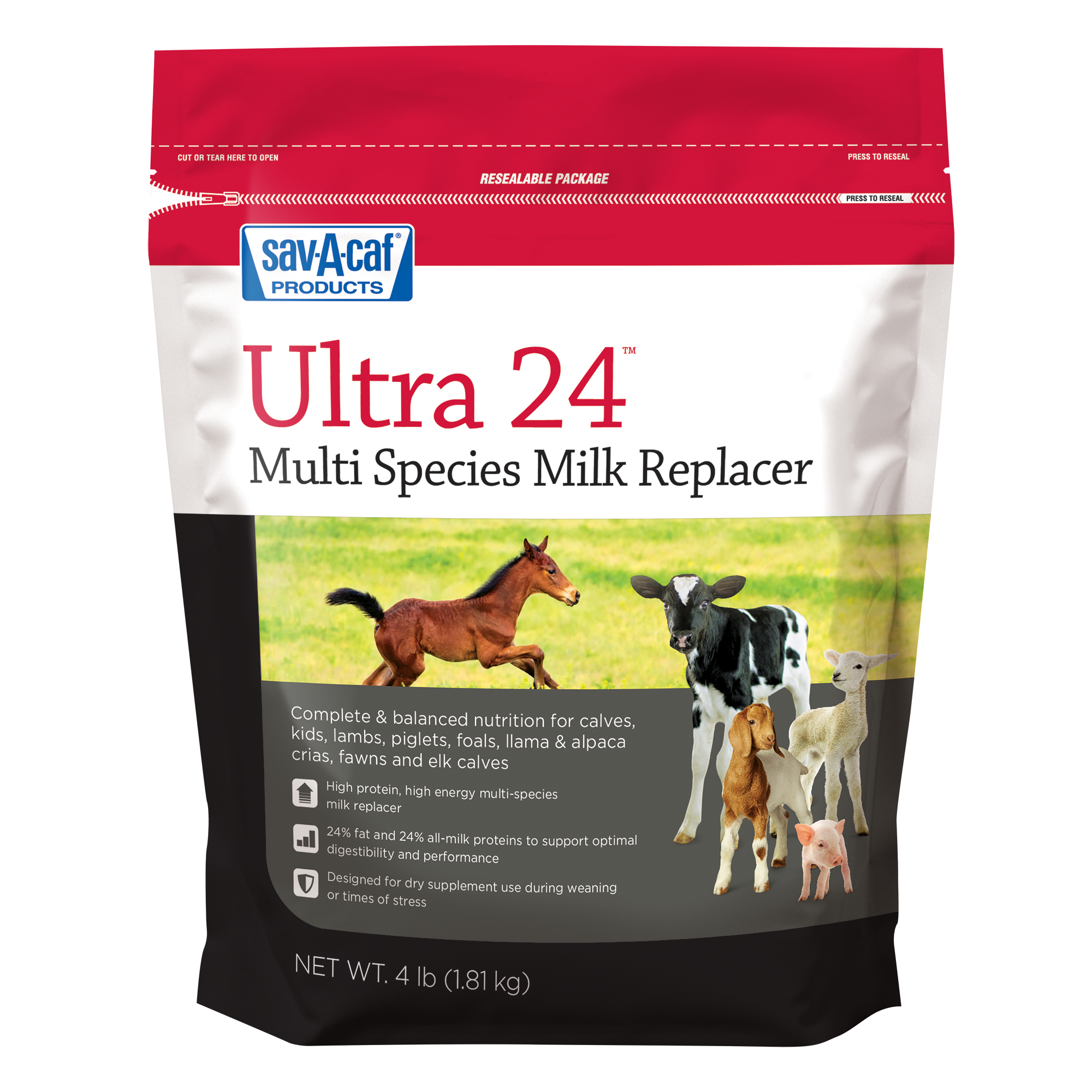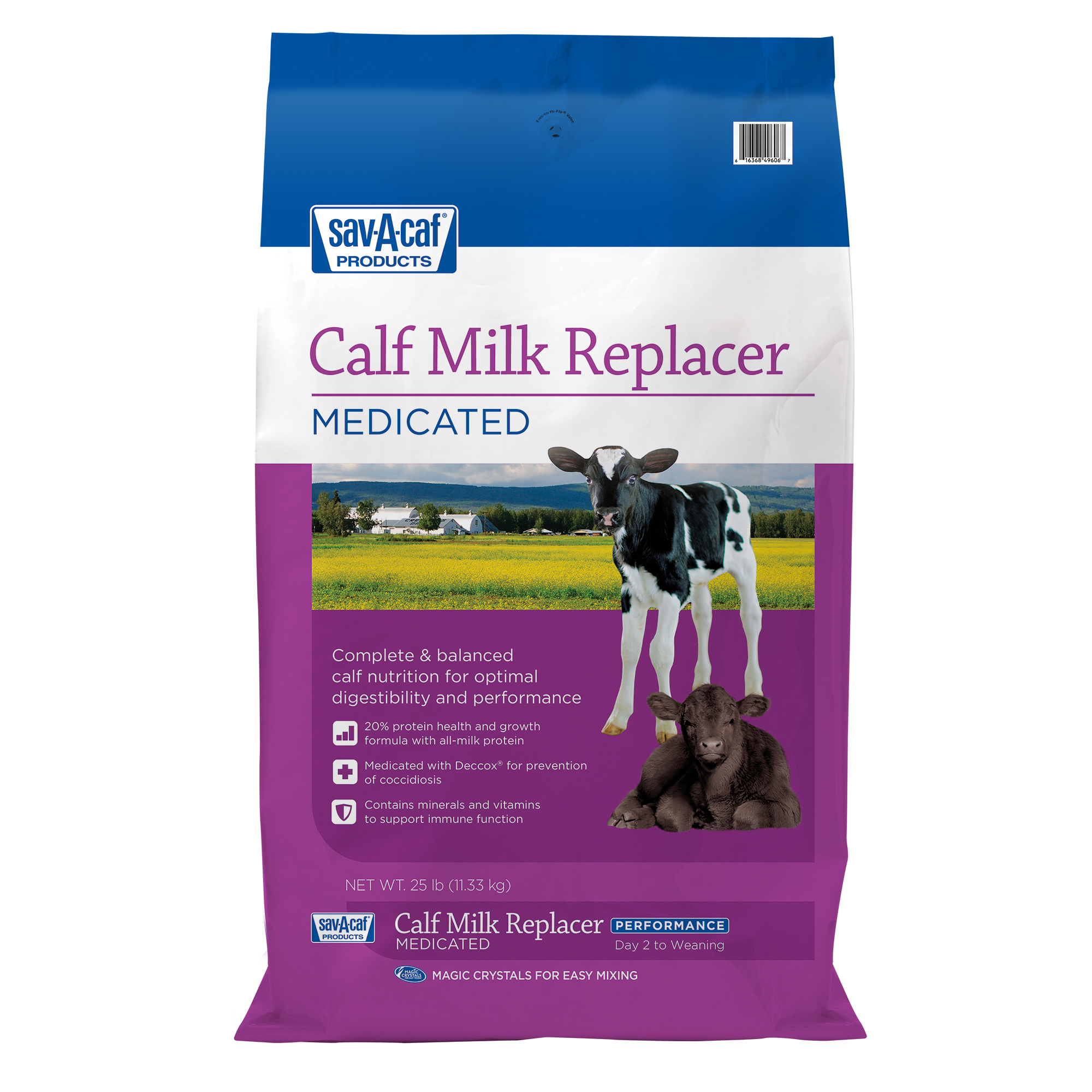
What you need to know about your baby goat's colostrum needs
A healthy baby goat is filled with personality. From playing and jumping to kicking up their hooves, they bring fun and laughter to your farm. This entertainment hinges on their first feeding.
Colostrum, the first milk a doe produces after she gives birth, is key to giving a baby goat a strong, healthy start. Since baby goats are born without immunity, goat colostrum helps provide immune protection until their immune system is fully functional. It also provides important antibodies the doe is unable to pass on during pregnancy.
The body of a newborn kid is uniquely suited to absorb these antibodies within the first couple hours after birth. Absorption of these critical antibodies helps set the stage for a healthy, playful life.
Here are five keys to goat colostrum success:
1. Test your does before goat kidding
Before goat kidding season, be sure to test your does for diseases that can be transmitted by goat colostrum, and work with your veterinarian for testing.
It’s important to know if any does in your herd have caprine arthritis encephalitis (CAE) or Johne’s disease. Testing for these diseases before the goat kidding season can help ensure you don’t spread the disease throughout your herd.
2. Understand your role in goat colostrum delivery
A doe’s colostrum provides the best nutritional start for her newborn kid because it contains antibodies specific to your herd and environment. Timing is everything when it comes to providing goat colostrum to newborn goat kids.
As time ticks by following birth, so does the antibody concentration in the doe’s colostrum.
Baby goats should begin to nurse within two hours of birth. If they do not nurse within two hours or receive an adequate amount of goat colostrum, you’ll need to step in by feeding a goat colostrum replacer.
3. Feed goat colostrum replacer as soon as possible
Failure to receive maternal colostrum is an emergency. You need to be prepared by keeping goat colostrum replacer, bottles and nipples on hand during the goat kidding season. A goat colostrum replacer can help your baby goats receive critical immune support and nutrition.
If kids don’t nurse within two hours, start bottle feeding a goat colostrum replacer like Sav-A-Kid® Colostrum Replacer. Continue to feed only colostrum for the first 24 hours of life, according to package directions, if the kid does not begin nursing properly.
A baby goat’s body is best equipped to absorb colostrum within the first two hours of life. Feeding a goat colostrum replacer can help ensure your newborn kids receive the antibodies they need for a strong start in this critical time window.
4. Know how much goat colostrum to feed
Most pregnancies result in twins, but a doe can have anywhere from one to five kids per pregnancy. A healthy newborn baby goat will likely weigh between 8-11 pounds at birth.
You’ll want to feed 2 ounces of goat colostrum replacer powder per 4 pounds of body weight. Plan to split the mixed solution into two or three feedings over the first 24 hours of life.
For example, if a newborn kid weighs 8 pounds, you’ll want to feed 4 ounces of colostrum replacer powder in total. Try feeding 2 ounces every 12 hours or 1.3 ounces every 8 hours.
In addition to feeding the proper quantity, it’s important to feed goat colostrum replacer at a baby goat’s body temperature of 104 degrees Fahrenheit.
Here are few more tips for feeding colostrum replacer to your goat kids:
- Refrigerate unused goat colostrum replacer solution promptly after mixing.
- Reheat gently over warm water and mix thoroughly before feeding.
- Do not microwave or freeze the solution.
- Discard any unused refrigerated goat colostrum replacer solution after 24 hours.
5. Transition to milk replacer
After the first 24 hours, if your baby goat is still not nursing properly, milk replacer will provide the balanced nutrition it needs to grow and develop.
Always choose a milk replacer specifically formulated for goat kids. Follow the package mixing and feeding instructions carefully to provide proper nutrition.
Read more tips about feeding baby goats and be sure to like My Farm Journey on Facebook and Instagram to continue learning more!



